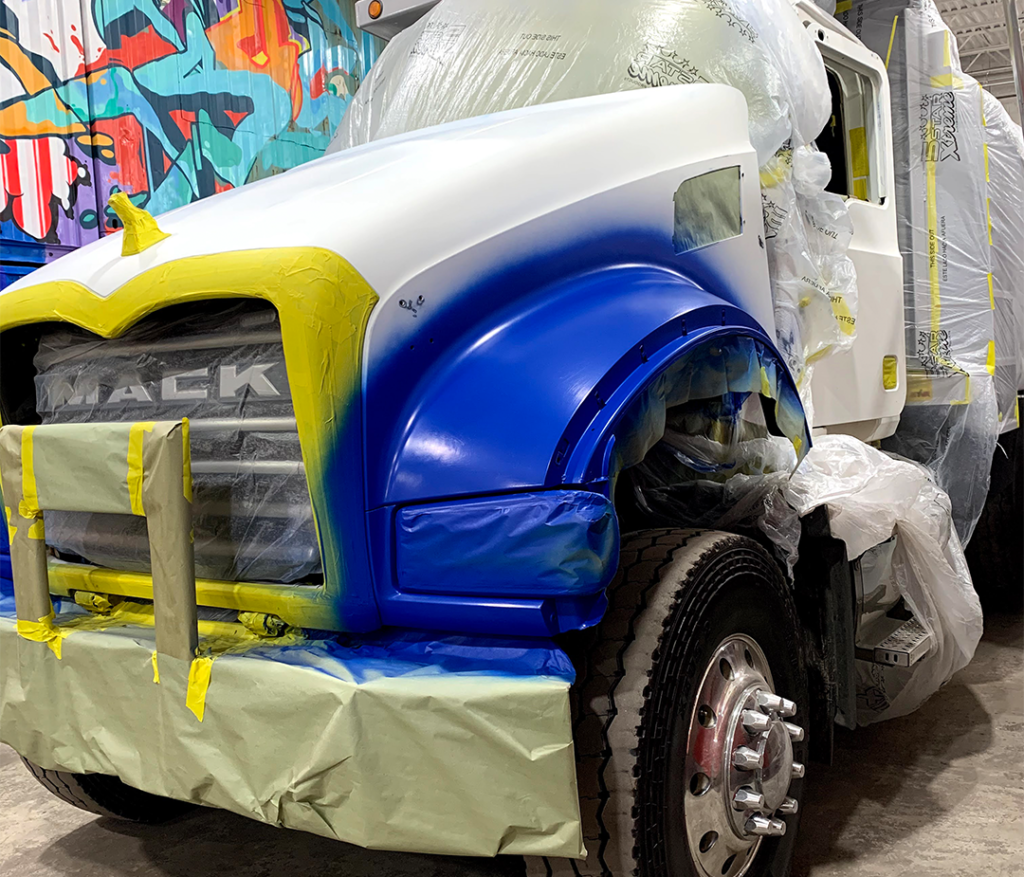
Truck collisions can cause significant damage, whether you’re dealing with minor dents or major structural issues. For truck owners, understanding the repair process is essential to restore your vehicle’s performance, safety, and appearance. This comprehensive guide walks you through everything you need to know about truck collision repair, from assessing damage to choosing the right repair shop.
1. Assessing Collision Damage
After a collision, the first step is to evaluate the extent of the damage.
- Visible Damage: Includes scratches, dents, or broken headlights. These are often cosmetic but can sometimes mask underlying issues.
- Structural Damage: Frame misalignments or compromised structural components can affect your truck’s performance and safety.
- Mechanical Damage: Collisions can impact the engine, suspension, or brakes, requiring immediate attention.
What to Do After a Collision
- Ensure everyone involved is safe and call emergency services if necessary.
- Document the damage by taking photos from multiple angles.
- Exchange insurance information and file a claim with your provider.
2. Choosing the Right Repair Shop
Not all repair shops specialize in truck collision repair, so it’s important to select one with experience and the right certifications.
- Certified Technicians: Look for technicians certified by organizations like ASE (Automotive Service Excellence) or I-CAR (Inter-Industry Conference on Auto Collision Repair).
- Specialized Equipment: Trucks often require larger tools and equipment for repairs, especially for frame straightening and heavy-duty components.
- Warranty on Repairs: Choose a shop that provides warranties to guarantee the quality of their work.
Questions to Ask a Repair Shop
- Do you specialize in truck collision repair?
- What certifications do your technicians hold?
- Can you provide an estimate before starting repairs?
3. The Repair Process
Truck collision repair typically involves several steps to ensure a complete restoration.
Inspection and Damage Assessment
Technicians will conduct a thorough inspection to identify visible and hidden damage. Advanced diagnostic tools may be used to assess internal systems.
Frame and Structural Repairs
If the truck’s frame is damaged, technicians will use specialized equipment to realign it. Modern trucks often require computerized systems to ensure precise adjustments.
Body Work and Panel Replacement
Dented or damaged panels are repaired or replaced to restore the truck’s exterior. Advanced materials like aluminum or composites may require specific repair techniques.
Mechanical Repairs
Mechanical components such as the engine, transmission, or suspension are repaired or replaced to ensure the truck operates safely and efficiently.
Paint and Finish
Repainting the truck restores its original look. Shops with color-matching technology can ensure a seamless finish. Clear coats are applied for added protection.
4. Cost of Truck Collision Repair
The cost of repair varies widely depending on the extent of the damage, the type of truck, and the repair shop.
- Minor Repairs: Dents, scratches, and small paint jobs may cost $500 to $1,500.
- Moderate Repairs: Replacing panels or repairing mechanical components can range from $2,000 to $5,000.
- Major Repairs: Frame realignment, extensive bodywork, or engine repairs can exceed $10,000.
Insurance Coverage
Most collision repairs are covered by comprehensive or collision insurance policies. Check your deductible and ensure the repair shop works with your insurance provider to streamline the claims process.
5. Preventing Future Damage
While accidents aren’t always avoidable, there are steps you can take to minimize the risk of future collisions.
- Regular Maintenance: Ensure brakes, tires, and suspension are in top condition.
- Defensive Driving: Maintain a safe distance from other vehicles and avoid distractions.
- Advanced Safety Features: Equip your truck with features like backup cameras, lane departure warnings, and collision avoidance systems.
6. The Importance of Quality Repairs
Investing in high-quality collision repair is crucial for:
- Safety: Proper repairs ensure the truck can withstand future impacts and perform reliably.
- Longevity: High-quality work helps prevent recurring issues and extends the truck’s lifespan.
- Resale Value: A well-maintained truck retains its value better, even after an accident.
Truck collision repair is a multi-step process that requires expertise and attention to detail. By understanding the repair process, choosing the right shop, and prioritizing preventative maintenance, you can ensure your truck remains safe, reliable, and road-ready.
When accidents happen, knowledge is power. With this guide, every truck owner is equipped to navigate the repair process confidently and efficiently. Contact us.
